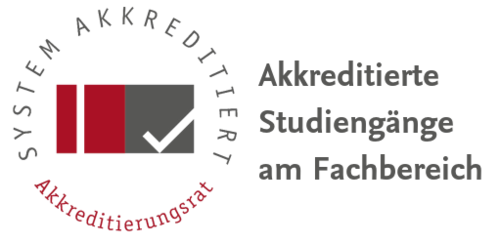Nachrichten der Institute & Seminare
New anthology on "Transnational and Transatlantic Fascism, 1918–2018: The Far Right in East Central and Southeastern Europe" edited by Grzegorz Rossoliński-Liebe and Per Anders Rudling published
26.01.2026 | Global History
Gedenken den Opfern des Nationalsozialismus am 27.01.2026 um 12:00
23.01.2026 | Institut für Vorderasiatische Archäologie
CALL FOR APPLICATIONS until 31.03.2026: Doctoral Position for Ptolemaeus Arabus et Latinus (BAdW, Munich)
Doctoral position (Arabist or Latinist) starting in October 2026
22.01.2026 | Institut für Arabistik
Workshop 13/02/26: Gendering and Historizing Cultures of Memory
A workshop as part of the doctoral program 'History and Cultural Studies' (HCS).
22.01.2026 | Promotionsstudium History and Cultural Studies
Stellenausschreibung: studentische Hilfskraft für das Projekt HaZen
21.01.2026 | Institut für Judaistik
Seminarprogramm Philologien des Nahen und Mittleren Ostens – gehalten von Prof. Dr. Alberto Cantera
Sein Vortrag trägt den Titel „Vištāspa und die politische Agenda der jungen Avesta-Priester“ und widmet sich der Rolle Vištāspas sowie den politischen Implikationen der jüngeren Avesta-Tradition.
20.01.2026 | Institut für Iranistik
Herzlich Willkommen: Ylenia Viggiano
Wir freuen uns, Ylenia Viggiano von der Universität Pisa als Gastwissenschaftlerin begrüßen zu dürfen.
20.01.2026 | Institut für Vorderasiatische Archäologie
Call for Papers: Wine in the Middle East and North Africa: Images, Places, Markets, and Brands of a Contested Commodity (March 2027)
Workshop from Monday, 15 March until Wednesday, 17 March 2027, will be held at the Freie Universität Berlin, Germany
19.01.2026 | Institut für Islamwissenschaft
„Präsenz und Sichtbarkeit verstärken" - Interview in der Jüdischen Allgemeine mit Prof. Dr. Leicht
19.01.2026 | Institut für Judaistik
EAA Annual Meeting: 26–29 August 2026, Athens, Greece
15.01.2026 | Institut für Vorderasiatische Archäologie
The Mainz Cuneiform Benchmark Dataset Series: Sign Annotations of 3D Rendered Tablets
15.01.2026 | Institut für Computational Ancient Studies
LERA beim CLARIAH Workshop "re-late – re-use – re-vise"
14.01.2026 | Institut für Computational Ancient Studies
Fachworkshop zum Aufbau des neuen 3D-Scanning-Labors des ARUB
14.01.2026 | Institut für Computational Ancient Studies
Neue Publikation von Dr. Mohammad Magout in "Oriente Moderno", 105(1-2), 70-96
14.01.2026 | Institut für Islamwissenschaft
CfP: Severing Ties in Japan – Zetsuen (disconnection) in Japanese Culture and Literature
13.01.2026 | Japanologie
Judaistik im Geist der Philologie. Erinnerungen - Buchpräsentation und Gespräch
12.01.2026 | Institut für Judaistik
Destiny in the Stars: The Beginnings of the Zodiac, Exhibition of the ZODIAC project in the Neues Museum Berlin, March 21, 2026 - January 10, 2027
12.01.2026 | Herzlich Willkommen am Institut für Wissensgeschichte des Altertums an der Freien Universität Berlin
Seminar "Religiöse Minderheiten": Einladung zu 2 Exkursionen
Im Rahmen des Seminars „Religiöse Minderheiten“ von Khanna Omarkhali sind alle religionsinteressierten Studierenden zu zwei Exkursionen herzlich eingeladen.
09.01.2026 | Institut für Iranistik


